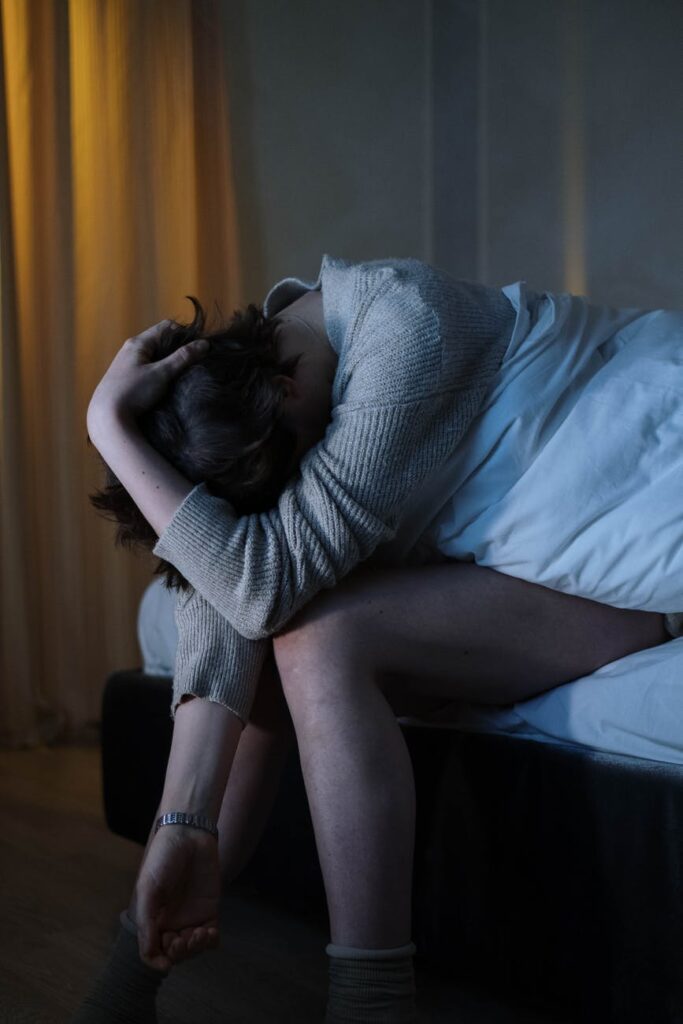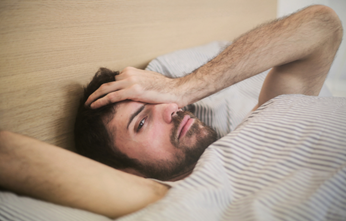Sleep and anxiety are two critical aspects of our physical and mental well-being. The relationship between the two is complex and bidirectional, with each influencing the other. This blog studies the connection, types of anxiety disorders, and practical strategies to improve sleep quality and reduce anxiety symptoms.
Importance of Sleep:
Sleep is a necessary process that allows our body and mind to recover, consolidate memories, and maintain overall health. A lack of proper sleep can lead to weakened immunity, chronic diseases, cognitive difficulties, mood disturbances, weight gain, and hormonal imbalances.
Sleep Cycle:
During sleep, our body goes through several stages, including non-REM (NREM) and rapid eye movement (REM) sleep. A healthy sleep cycle includes cycling through these stages multiple times each night. For more information about sleep cycles read our blog: How to ensure you get a good night’s sleep.
What is Anxiety? Understanding Anxiety Disorders:
Anxiety is a natural emotion characterised by worry, unease, or fear. However, too much or continuing anxiety can interfere with daily activities and may indicate an anxiety disorder.
Types of Anxiety Disorders:
There are several types of anxiety disorders, including Generalized Anxiety Disorder (GAD), Panic Disorder, Social Anxiety Disorder, Specific Phobias, Obsessive-Compulsive Disorder (OCD), and Post-traumatic Stress Disorder (PTSD).
The Connection Between Sleep and Anxiety:
Anxiety and sleep are closely linked, with anxiety often causing sleep disturbances and sleep deprivation exacerbating anxiety symptoms. Anxiety can cause racing thoughts and overstimulation making falling or staying asleep throughout the night difficult. Lack of sleep can also add to growing or worsening anxiety disorders.

Strategies for Improving Sleep and Reducing Anxiety:
Cognitive Behavioural Therapy (CBT)
Therapists widely use CBT to treat anxiety disorders by focusing on identifying and changing negative thought patterns.CBT can effectively reduce anxiety and improve sleep for many individuals, especially those with insomnia. (Insomnia means you regularly have problems sleeping. It usually gets better by changing your sleeping habits. Taken from NHS)
Medications
Doctors may recommend various medications, such as anti-anxiety drugs, antidepressants, and beta-blockers, to help manage anxiety symptoms. These medications can help reduce anxiety, making it easier to fall asleep and stay asleep throughout the night.
Sleep Hygiene
Improving sleep hygiene can also help reduce anxiety and enhance sleep quality. Creating a comfortable sleep environment (investing in a comfortable mattress and pillows that support your sleeping position. Choose bedding that feels soft and cosy to the touch), establishing a consistent sleep schedule, limiting caffeine and alcohol intake in the afternoon and evening, and engaging in relaxation techniques, such as deep breathing exercises or meditation, before bed are ways to improve sleep hygiene.
Relaxation Techniques
Incorporating relaxation techniques into your daily routine can help reduce anxiety and improve sleep quality. Examples include deep breathing exercises, progressive muscle relaxation, mindfulness meditation, guided imagery, and yoga or tai chi.
Conclusion
Sleep and anxiety have a complex and bidirectional relationship, and it’s crucial to prioritise both aspects of your physical and mental health. Understanding this connection and implementing effective strategies can improve your overall well-being and quality of life. If you’re struggling with persistent anxiety or sleep disturbances, it’s essential to consult with a healthcare professional to determine the best treatment plan for your specific situation. For more information about anxiety visit: https://www.mentalhealth.org.uk/

